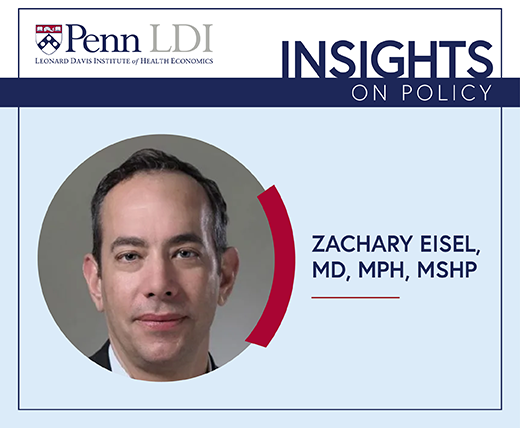
Estimated Overdose Deaths Due to the Loss of MOUD in the One Big Beautiful Bill Act
Research Memo: Delivered to House Speaker Mike Johnson and Majority Leader John Thune
News
“I credit this experience with creating one of the most impactful pivots I’ve had in my personal, academic, and professional life to date,” said Devin Brown as he finished up the culminating week-long virtual symposium closing the 2021 class of the University of Pennsylvania’s Summer Undergraduate Minority Research program (SUMR).
Created 22 years ago as a collaboration between Penn’s Leonard Davis Institute of Health Economics (LDI) and The Wharton School, SUMR provides an intensive, 12-week immersion in health services research (HSR) for minority and other undergraduates interested in exploring academic research careers. Brown, a University of Oklahoma senior, was one of 31 undergrads from 20 universities nationwide selected from 300 applicants for this year’s cohort. Like many of them, he looks back on it as a life-changing experience.

“Given my prior involvement with research,” said Brown, “I came into SUMR believing research was something that probably wasn’t for me. However, I leave this program with a newfound passion for research and a refined vision for the role it will play in my future career.”
Similarly, SUMR Scholar Madison Burnard, a Penn State senior majoring in Biobehavioral Health, experienced a career vision epiphany. “In the past I often debated between whether I want to pursue only an MD or both an MPH and MD,” she explained. “But after this SUMR program, I am strongly considering applying to an MD/PhD program, because my passion for research grew exponentially this summer.”

During the five-day finale symposium, Brown, Burnard, and the 29 other SUMR scholars gave 48 presentations of their research on topics ranging from insurance disparities in gynecologic cancers and the social determinants of breast cancer in Black women, to the intersection of the built environment and the opioid crisis, and mental health disparities by gender identity in the U.S.
Despite the 15,000 scientists currently involved in the field across the country, health services research is little known outside of academia. It is an area of scientific inquiry focused on how health care delivery is organized, managed, financed, and quality-controlled throughout the United States. The studies and reports produced by HSR scientists inform and influence the political process, regulatory agencies and business executives at all levels of the health care industry. The fundamental issue addressed by the SUMR pipeline program is the lack of racial and ethnic diversity throughout the HSR field that has historically tended to freight its findings and insights with a white-only perspective.
Each SUMR scholar is taken under wing by one or two faculty mentors and directly involved in health services research projects for the duration of the summer. The three-month SUMR program also includes an intense classroom curriculum taught by Penn faculty members along with top health care experts from other universities, government and industry.
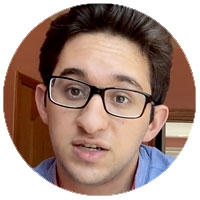
This year, 56 faculty members from Penn’s Perelman School of Medicine, the Penn Nursing, The Wharton School, School of Arts and Sciences, Annenberg School for Communication, and the Children’s’ Hospital of Philadelphia served as SUMR mentors.
SUMR scholar Karim Farhat, a Cornell University economics major, for one of his projects, worked with mentors and LDI Senior Fellows Ari Friedman, MD, PhD, and Matthew McCoy, PhD, on the study, “Analysis of Third Party Tracking on Hospital Homepages.” Farhat was impressed by the strong reaction to his symposium presentation.
“The audience seemed genuinely pensive about our findings,” Farhat said. “It was clear they easily understood the dangers that present themselves when health information is tracked online. Their questions were really penetrating. They shared our concerns about privacy, and I hope our work goes a long way in addressing the shortcomings of these hospital webpages.”
Scholars like Farhat are temporary employees paid for their time working in researchers’ labs. The program also pays for them to take a six-month online Graduate Record Examinations (GRE) course, as well as the GRE test that is an admissions requirement for many graduate schools.

“The SUMR program is ultimately contributing to the creation and growth of a more inclusive HSR workforce to help solve the most complex health and health care challenges in our field,” said mentor and Penn School of Nursing Assistant Professor Adriana Perez, PhD, CRNP, ANP-BC, FAAN, FGSA.
“My two mentees this year – Bryan Escobar and Andrew Beltran – brought a unique lens to our research questions, informed by their own experiences and knowledge related to Latino health equity,” said Perez. “Their unique perspectives and lived experiences are very much needed to inform health services and policy research.”
Mentor and Assistant Professor at the Perelman School’s Department of Medical Ethics and Health Policy Harald Schmidt, PhD, agrees. “The SUMR program is one of the things that makes me most proud to be associated with LDI,” he said. “The underrepresentation of scholars of color in health services research is another demonstration that, while our society rightly prides itself on being based on equality of opportunity, in practice, multiple barriers prevent its realization. SUMR makes an extremely meaningful contribution in this area.”
Schmidt emphasized that the SUMR scholars’ research work does not involve simulations; they are treated as full members of scientific teams engaged in major research projects.

“The value of SUMR for scholars seems to lie in the research experience itself and the opportunity to establish networks with Penn faculty/staff and fellow scholars,” said Schmidt. “I absolutely think that scholars add to the research – in my case, all SUMR scholars I worked with contributed substantially to ongoing projects, resulting in co- or first-authored publications, and/or major contributions to grants.”
An example of how this can benefit young scholars over the long haul can be seen in the article “Understanding Contributors to Racial/Ethnic Disparities in Emergency Department Throughput Times: A Sequential Mixed Methods Analysis,” published in the August 2021 edition of the prestigious Journal of General Internal Medicine.
During the SUMR program of 2018, three SUMR scholars – Mohamed Abdirisak, Toluwa Omole, and Alec Hilton – were mentored by Jaya Aysola, MD, DTMH, MPH, Assistant Dean of Inclusion and Diversity and Assistant Professor of Medicine at the Perelman School. Their study analyzed the racial and ethnic variations in emergency department throughput for patients who were ultimately admitted. Among the findings was that Black patients waited significantly longer periods of time than whites for the physicians’ admission decision. When the race/ethnicity of the clinician and patient differed, clinicians were more likely to interrupt patients, make less eye contact, and ignore patient requests.
All three SUMR scholars became deeply engaged in the work and, after the SUMR 2018 ended, continued to work with Aysola on the project. In early August 2021, their names, along with those of Aysola and her co-researchers, appeared in the Journal of General Internal Medicine article – providing them with an important first step in academic publishing. Abdirisak is now a Program and Policy Analyst in the Office of the Secretary of the Wisconsin Department of Health Services; Hilton is a COVID Response Team Epidemiologist in the Rhode Island Department of Health; and Omole is a Peer Mentor at Arizona State University.
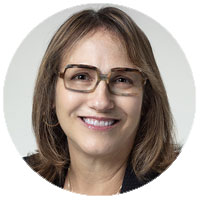
This year’s SUMR program was different in that it was the second time it’s been held via Zoom conferencing rather than in-person, and it included the largest group of SUMR scholars in the program’s history – 31. Both facts demonstrate how the program has been changed by the pandemic in ways both disruptive and productive, according to SUMR Founding Director Joanne Levy, MBA.
“Going into it in 2020 was a challenging experiment in whether or not we really could convert all the moving parts and people involved in SUMR’s long-established in-person mode into a remote Zoom network that would achieve something close to the same thing,” said Levy. In that first pandemic year, the program was scaled back to 13 students, all of whom were from Penn.
“2020 taught us how to run a remote network at the same time it showed some aspects of Zoom conferencing that worked really well,” said Levy. “For instance, once you have a system established, the remote network can be scaled up in ways that enabled us to take on more than twice the students this year than we were able to accommodate last year. The key to making it work was having faculty mentors who were willing to dive into Zoom in a big and sustained way to create ongoing working relationships with our SUMR scholars.”
“Another major benefit was how Zoom became such a game changer in allowing us to bring in so many more top-level national experts for our seminars throughout the summer,” Levy continued. “However, remote can’t replace in-person and we intend to get back to in-person as soon as we can. But we’ll use a hybrid model in the future. I can imagine standing in the LDI auditorium with the scholars in their seats and Zoom bringing them top speakers who otherwise wouldn’t have been able to travel across the country to Penn.”
This year’s remote SUMR lecturers beyond Penn faculty members included Julian Harris, MD, MBA, former head of the health care team in the White House Office of Management and the Budget (OMB); José Pagán, PhD, Board Chair of NYC Health + Hospitals, the country’s largest public health care system; Jose Escarce, MD, PhD, of UCLA, a leading national authority on racial and ethnic disparities in health care; Jeffrey Hoffman, MD, FACS, Chief Medical Officer of the Cambridge Health Alliance; and 2005 SUMR alumna Naomi Adaniya, PhD, MA, MPH, Chief Data Officer at the US Drug Enforcement Administration (DEA). Top executives from Mathematica, Novartis, Eli Lilly, Harvard’s Cambridge Health Alliance, Meharry Medical College, and Independence Blue Cross were also among the SUMR lecturers.
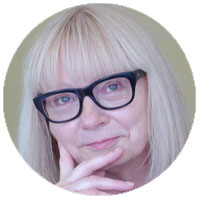
To facilitate bonding and full engagement with mentors across a Zoom network stretching from Southern California to Rhode Island, this year’s scholars had meetings and other touch points every day of the program. Among other things during the first seven weeks, they connected in teams twice a week to work with their writing coaches.
Split into five groups, the scholars were coached by a five-member team of Penn’s Marks Family Center for Excellence in Writing Center, the same organization that provides writing support to Penn students and faculty members. The focus was on researching and drafting white papers on topics ranging from COVID vaccine hesitancy and public health infrastructure, to the connections between gun violence and structural racism, and opioid harm reduction.
Marks Center Director Valerie Ross, PhD, explained: “We worked with the SUMR scholars to transform them from student writers to novice professional writers and from individual to collaboratively authored texts. For instance, we moved those in the opioid harm reduction white paper team from dutifully compiling academic research on harm reduction methods to speaking first-hand with health practitioners and community activists who are dedicated to resolving this crisis in the Philadelphia Kensington neighborhood.”
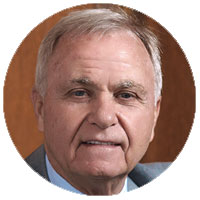
“The perspectives of these speakers taught students the complexity of solving community-based problems and led them to conclude that the problem could only be solved by a coherent, comprehensive, community-based, and community-engaged approach that combined harm-reduction methods with housing, destigmatization, decriminalization, and support and mentorship of those with addiction as well as those dealing drugs,” said Ross. She also noted that such intense collaborative efforts over many weeks is a potent bonding experience for students, even over Zoom.
Providing another small bit of in-person bonding in July, mentor and Wharton School Professor Emeritus of Legal Studies and Business Ethics Arnold (Skip) Rosoff hosted a barbecue on the dock at his bayside home in Margate, NJ. Half a dozen SUMR scholars made it to meet and mingle with former SUMR scholars and Wharton Health Care PhD students.
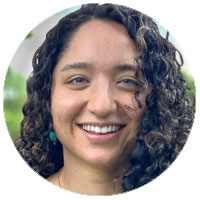
“Zoom hasn’t been ideal,” noted barbecue attendee Karishma Lachhwani, 2021 SUMR scholar and Penn junior studying Health and Societies. “But the white paper collaborations and the in-person barbecue with the scholars who were able to make it allowed for decent bonding to occur. Nothing compares to being in-person.”
“All in all,” Lachhwani continued, “SUMR completely exceeded my expectations. At first, all I expected was a research experience and mentorship, but Joanne Levy put us in the same room with so many prominent people in the health services research field, it was truly remarkable. I learned so much. We need more programs like this to support young people in minority groups and expose them to academia, research, and career paths in health care. If that helps people in power become better attuned to structural racism, it will increase the chances for all of us to improve the health care system.”

Research Memo: Delivered to House Speaker Mike Johnson and Majority Leader John Thune

Research Memo: Delivered to House Speaker Mike Johnson and Majority Leader John Thune

Hospitals’ Current Cost Reports are Unreliable and Should be Improved, LDI Fellow Finds

If Federal Support Falls, States May Slash Home- and Community-Based Services — Pushing Vulnerable Americans Into Nursing Homes They Don’t Want or Need

Historic Coverage Loss Could Cause Over 51,000 People to Lose Their Lives Each Year, New Analysis Finds

Cited for “Breaking New Ground” in the Field of Hospital Operations

Men are Stepping Up at Home, but Caregiving Still Falls On Women and People of Color LDI Fellow Says

More Flexible Methadone Take-Home Policy Improved Patient Autonomy

Penn LDI Seminar Details How Administrative Barriers, Subsidy Rollbacks, and Work Requirements Will Block Life-Saving Care